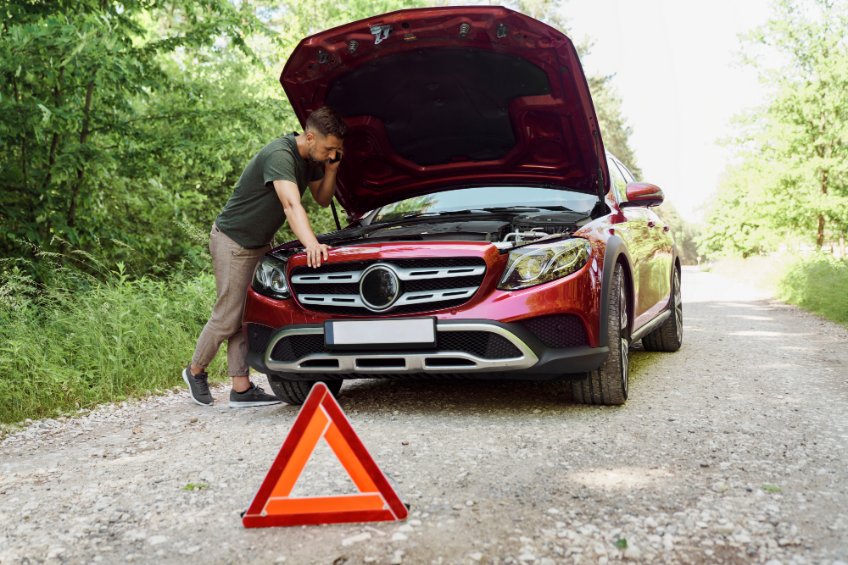
Nothing ruins a road trip like your car overheating in an unknown place. Not only is an overheated engine inconvenient, it’s also scary and potentially dangerous. Engines overheat for a variety of reasons, such as a cooling system leak or malfunction preventing heat from escaping the engine compartment, a broken radiator fan or water pump, or a coolant hose that is clogged. Whatever the issue is, if it’s not addressed quickly, your engine could sustain serious damage. While on any road trip, pay attention to the temperature gauge on your dashboard. If it starts to go up and is crossing into the red, you’ll need to react. If you catch it before it’s too late, you can prevent or reduce the damage. If you notice steam, which looks like smoke, coming up from the hood, this is another sign you do not want to ignore. Another indication of a problem is a strange smell coming from the engine area. Note that some issues, such as a coolant leak, may smell a little sweet while other problems, such as leaking oil, will smell burnt. If you notice any of the above issues, the first thing you’ll want to do is turn off your air conditioning to reduce the stress on the engine then crank up the heat, even if it’s 100 degrees outside. This will help to pull some of the heat from the engine. If you catch an overheating engine quick enough, this might be all it needs until you get to your next stop. However, if the gauge continues to rise or the problem is getting worse, quickly find a safe place to pull over and turn the car off. Let it cool for at least 15 minutes while you monitor the temperature gauge to see if it goes back to normal. Regardless of what happens, make a plan during this time to take the car in for a checkup as soon as possible. The next step is to check the engine coolant and only add some if it needs it. If the hose is clogged or if the problem is something other than a coolant issue, this won’t help. If you don’t have access to coolant and you see it’s low or if there is a larger issue that can’t be managed temporarily, you may need call roadside assistance to help you out. Try not to panic and don’t push the car to keep going while crossing your fingers. You also don’t want to immediately pop the hood after you pull over—this puts you at risk for burns or injuries from the steam. Give it a few minutes first. There are some ways to prevent overheating from happening. Make sure you’re getting regular checks on your car that include coolant flushes or exchanges as needed. Stay current on the maintenance needs of your car to make sure it’s running at tip-top shape by bringing it in to Transmission City and Automotive Specialists.Indications of an Overheating Engine
Act Fast with These Steps
Prevention is Key